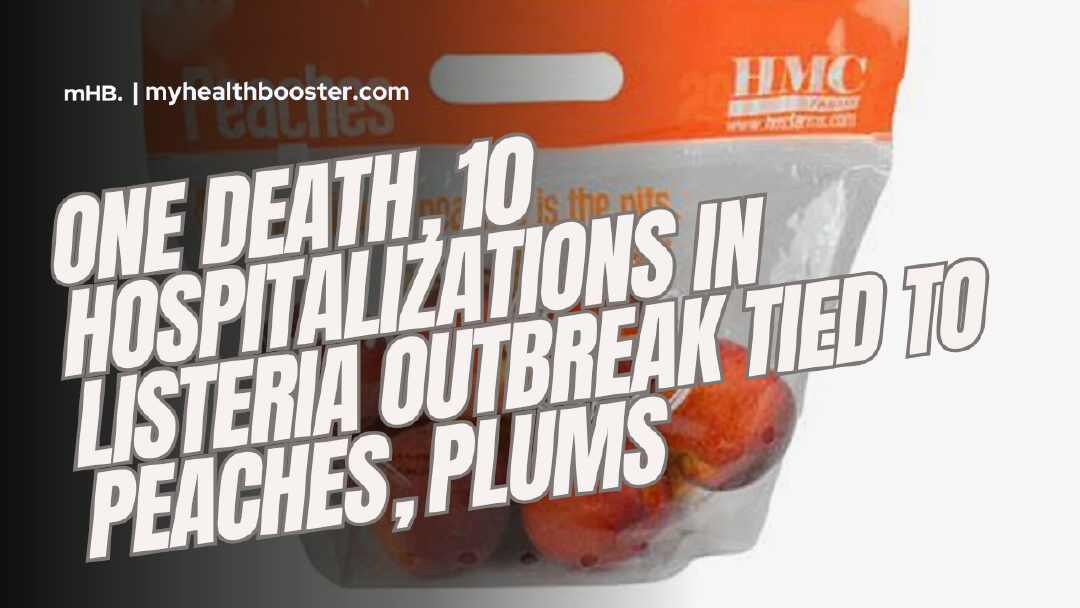Peaches, nectarines, and plums contaminated with Listeria have resulted in one fatality and the hospitalization of 10 individuals due to food poisoning across seven states, according to federal officials.
The Listeria outbreak has also led to one premature birth, as reported by the U.S. Centers for Disease Control and Prevention (CDC). The unfortunate incident occurred in California.
States affected by food poisonings related to Listeria-tainted stone fruit include Colorado, Kansas, Illinois, Michigan, Ohio, and Florida.
The source of the outbreak has been identified as whole peaches, plums, and nectarines produced by HMC Farms, sold in 2022 and 2023 between May 1 and Nov. 15 of those years, according to the CDC.
HMC Farms has initiated a voluntary recall of peaches, plums, and nectarines sold in retail stores during the specified timeframe. The recalled fruit, available individually and in two-pound bags, is no longer on store shelves. However, consumers are urged to check their freezers for any frozen purchases and discard them.
This outbreak is unrelated to the Salmonella outbreak linked to cantaloupe announced last week.
Listeria ranks as the third leading cause of foodborne illness in the United States, with pregnant women being 10 times more likely to contract a Listeria infection than others, according to the CDC. Infection during pregnancy results in fetal loss in about 20% of cases and newborn death in 3% of cases.
Seniors aged 65 and older and individuals with weakened immune systems are also at an increased risk. Approximately 87% of cases not associated with pregnancy require hospitalization, with a mortality rate of about 1 in 6 patients.
Common symptoms include fever, muscle aches, and tiredness. Symptoms typically manifest within two weeks of consuming Listeria-contaminated food but can appear as early as the same day or as late as 10 weeks afterward.
Investigators are actively working to identify any other fruit products that may be contaminated with Listeria, and the CDC advises consumers to thoroughly clean their refrigerators, containers, and any surfaces that may have come into contact with the recalled fruit. Listeria can survive in a refrigerator and easily spread to other foods and surfaces.
